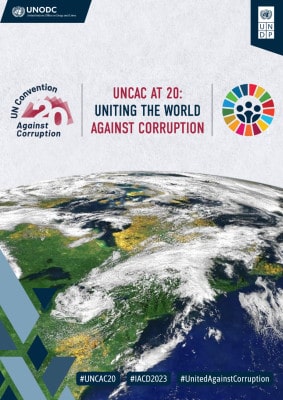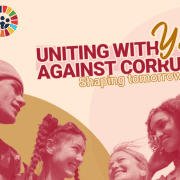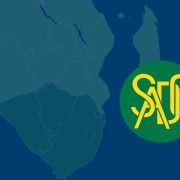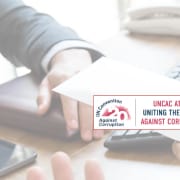|
Getting your Trinity Audio player ready...
|
International Anti-Corruption Day (IACD) is held annually on 9 December – this year, activists and policy-makers commemorate a special anniversary. The UN Convention against Corruption (UNCAC), the world’s first and only legally binding anti-corruption instrument, is 20 years old.
The anniversary is also the theme for this year’s IACD – UNCAC at 20: Uniting the World Against Corruption.
Governments, international organisations, civil society, youth, and the private sector from across the world gathered in Vienna on 31 October 2023 to mark the occasion – the same day, 20 years ago, that the UN General Assembly, through its Resolution 58/4, adopted the UNCAC. As of October 2023, there are 190 parties, which includes 185 UN member states, the Cook Islands, Niue, the Holy See, the State of Palestine, and the European Union. There are 140 signatories, most of which have ratified the UNCAC.
The convention is administered by the Vienna-based UN Office on Drugs and Crime (UNODC). It was first made available for signature at a conference in Mérida, Yucatán, Mexico, from 9 to 11 December 2003 and since then at the UN’s New York headquarters. As of October 2023, there are 190 parties, which includes 185 UN member states, the Cook Islands, Niue, the Holy See, the State of Palestine, and the European Union. There are 140 signatories, most of which have ratified the UNCAC.“The adoption of the United Nations Convention against Corruption will send a clear message that the international community is determined to prevent and control corruption,” said then UN Secretary-General Kofi Annan in the foreword to UNCAC.
“It will warn the corrupt that betrayal of the public trust will no longer be tolerated. And it will reaffirm the importance of core values such as honesty, respect for the rule of law, accountability, and transparency in promoting development and making the world a better place for all.”
UNCAC’s focus areas
UNCAC encompasses diverse and specific forms of corruption, such as bribery, trading in influence, abuse of functions, and various acts of corruption in the private sector.
Through its five focus areas, UNCAC looks to prevent and criminalise corruption, define specific acts of this crime, and promote international co-operation, the recovery and return of stolen assets, and technical assistance and information exchange.
These themes are actioned by intergovernmental working groups set up by the Conference of States Parties (CoSP) to UNCAC, with the aim of developing cumulative knowledge, encouraging co-operation, and facilitating exchange of information, among others.
The working groups meet regularly – for instance, to date, 12 meetings to enhance international cooperation have been held, and 17 have been held to discuss asset recovery strategies.
International co-operation, meanwhile, has helped recover and return US$4.3-billion in corruption proceeds to the countries from which they were stolen since 2010.
Other mechanisms such as the UNODC’s regional anti-corruption platforms and anti-corruption hubs have helped states parties to implement UNCAC more rapidly through the sharing of good practices and challenges.
“For two decades, the UNCAC has stood as a resonant global commitment to fight corruption, and as a highly effective platform to carry out that fight,” said UNODC executive director Ghada Waly. “As our global framework in the face of corruption, the UNCAC is vital for shared global aspirations.”
At the 10th session of the CoSP, due to kick off in Atlanta, US, on 11 December 2023, participants will review the implementation of the UNCAC by states parties and discuss the various thematic areas.
Just as crucial as the commemoration of the anniversary “is our examination of the remaining gaps that need addressing to ensure that this mechanism continues to grow stronger in the years ahead,” said UNDOC on its website.
Delegates will also endeavour to develop a common vision for future anti-corruption efforts.
“In a world that yearns for unity, we need to seize this opportunity and stand united against corruption,” Waly added.
South Africa’s UNCAC implementation is questionable
South Africa signed the convention on 9 October 2003 and ratified it on 22 November 2004. Ratification means that a state has declared its consent to be bound to a treaty.
This means that South Africa is obliged to adhere to the provisions of the UNCAC – however, this remains a questionable commitment. For example, clause 1 of Article 8 states that “In order to fight corruption, each State Party shall promote, inter alia, integrity, honesty and responsibility among its public officials, in accordance with the fundamental principles of its legal system.”
Clause 6 goes as far as instructing that “Each State Party shall consider taking, in accordance with the fundamental principles of its domestic law, disciplinary or other measures against public officials who violate the codes or standards established in accordance with this article.”
There is little sign of such action. South Africans know there are many public servants, including those still serving at the top levels of government, who have never been held to any particular standard of good ethics or have been required to account for various violations of codes or standards of behaviour.
The irony is that, in reading Annan’s words of 20 years ago about the corrupt betraying public trust, it becomes clear that the very government which is beholden to UNCAC, has committed exactly that betrayal.









